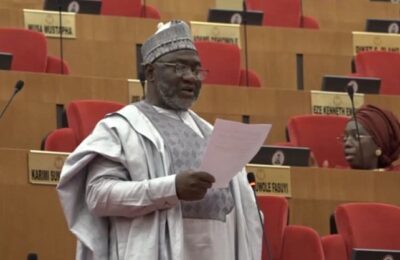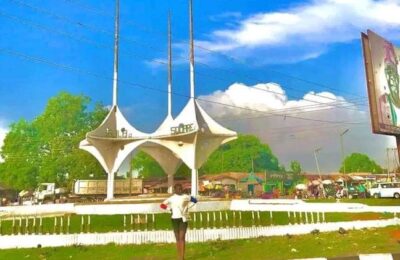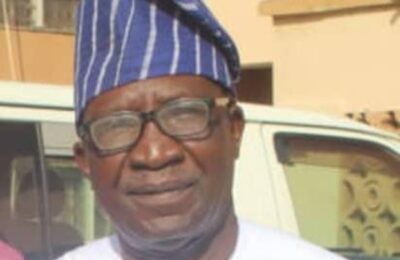In Igala land, the echoes of betrayal, power struggles, and political disillusionment are not just whispers of the past but living scars that continue to shape the present. The tragic story of His Royal Highness Ameh Oboni, whose death is often believed to have been the result of political machinations and betrayals, remains a poignant reminder of the dangers of internal divisions. For the Igala people, this history is not just a relic; it is a lens through which to understand the political dynamics that continue to unfold in Kogi State, particularly the rise of Yahaya Bello.
The story of Ameh Oboni, the Attah Igala, is a deeply tragic one. In the mid-20th century, after a long reign, Oboni was believed to have fallen victim not just to external colonial forces but also to power struggles within his own community. Internal betrayals, particularly from those within his royal circle, are said to have contributed to his downfall. In the end, his death was marked by suicide—a desperate response to pressures both political and personal. His untimely demise remains an indelible part of Igala folklore, a cautionary tale about the perils of betrayal and disunity.
Fast forward to the present day, and it becomes clear that these same forces of betrayal and division continue to haunt the Igala people. The rise of Yahaya Bello as the Governor of Kogi State is a testament to this continuing pattern. While Bello himself is from the Ebira ethnic group, his ascension to the governorship has raised serious questions about how Igala political power was undermined from within. Some have suggested that certain Igala political leaders betrayed their own people, either out of personal ambition, jealousy, or to settle old scores. These betrayals opened the door for Yahaya Bello, who, despite his political base in the Ebira community, capitalized on the divisions within the Igala leadership.
It was not just the death of Prince Abubakar Audu that ushered in Yahaya Bello. It was a political scheme orchestrated by certain elites in Igala land. Otherwise, how could Audu struggle for years, only for another man to reap the benefits of his labor? Today, we are all victims of the monster we created. The same political betrayal that once led to the downfall of great Igala leaders paved the way for the emergence of Yahaya Bello, who has since reshaped the political landscape of Kogi State to the disadvantage of the Igala people.
The Igala people have long been a formidable political force in Kogi State, with a rich history of political activism and leadership. However, internal divisions have weakened their collective strength. The concept of Ulena Kpai Ulaka—jealousy and hatred—has unfortunately been a driving force in many of these betrayals. It is the age-old struggle between unity and division, between the pursuit of the greater good and the pursuit of personal gain. Political leaders, blinded by ambition and hatred for their rivals, have sold the future of the Igala people for short-term gains, often aligning themselves with external forces to undermine their own people’s political might.
The betrayal did not stop there. Isah Echocho, once accused of religious fundamentalism, was still courted by those very individuals who accepted his money, cars, and other material gifts, only to later turn against him. Afterward, Captain Idris Wada was mysteriously brought from obscurity to ‘captain’ Kogi State, only for his ship to be stranded in the heavy sands of the Benue and Niger rivers. Many Igala people described Captain Wada as nothing more than a “kitchen woman” in politics—someone who lacked the strategic acumen and strength to navigate the rough waters of governance.
Even the Commissioner for Works, whose responsibility includes infrastructural development, cannot construct the road that leads to his own compound. Yet, if you visit Ebira land, you will see a different picture—roads constructed, infrastructure developing, and leadership that seems to prioritize its people. Meanwhile, Igala politicians remain engrossed in internal betrayals and self-destruction.
This cycle of political missteps and betrayals is best captured in the Igala proverb: “Ema Mugbo K’omi kpe n, E rewa ugbo kuma kuna we wa”—if you do not know where the rain beat you, you will remember where the fire was lit for you. The lesson is clear: a people who fail to recognize the sources of their downfall are bound to repeat history.
The rise of Yahaya Bello, the former governor of Kogi State, yet still controlling indirectly, as a political lion and godfather in Kogi State, while Igala leaders have been reduced to mere cubs, is disheartening. Even Edward Onoja, once a powerful force, has been betrayed and relegated to warming the political bench. The same senatorial position that Senator Natasha Akpoti-Uduaghan uses to shake up Kogi and Nigerian politics is the same position that Echocho occupies—yet he kneels before Bello. Imagine a senator kneeling before a governor. This is the extent to which Igala political influence has been diminished.
Prince Abubakar Audu once warned: “Do you hear and understand their language? Do not let them in!” But his warning went unheeded. Now, after Ebira dominance, Igala people should prepare for another shift—Okun or Yoruba rule after Governor Ododo. The political tide is shifting, and Igala leaders, instead of planning for the future, continue to engage in self-destructive betrayals.
Instead of focusing on meaningful development, the only policies Igala leadership can now boast of are imposing curfews and banning masquerades in Igala land. This is nothing short of a betrayal of religious and cultural heritage. How can we justify banning masquerades in a land that has vigilantes, community policing, and government policies that should regulate security effectively? This is akin to throwing away one’s identity under the pretense of security measures.
The Igala people, like all ethnic groups, are blessed with a rich cultural heritage and a deep well of political potential. But, as we see time and again, that potential is often undermined by internal strife, jealousy, and political betrayal. The rise of Yahaya Bello, built on the betrayal of Igala’s political might, is a direct consequence of the internal political divisions that have plagued the region for generations.
The question now is: Can the Igala people, once a powerful force in Kogi’s political landscape, reclaim their unity and political power? Or will they continue to be divided by the forces of Ulena Kpai Ulaka, allowing others to dominate their future?
The story of Ameh Oboni, a monarch betrayed by his own people, should serve as a stern warning. His tragic end was not just the result of external enemies but also of internal political struggles that led to a loss of unity. In the modern-day political arena of Kogi State, the Igala must confront these same forces of disunity and betrayal. It is time for the Igala people to put aside their differences, unite around a common cause, and reclaim the political power that is rightfully theirs.
The Igala people must stop betraying one another. It is only through unity and a collective vision that they can achieve common goals. A divided people will always be conquered, but a united people can reclaim their lost glory. The future of Igala land depends on the choices made today. Will the people choose unity and strength, or will they continue to feed the altar of betrayal that has been set before them? Only time will tell.
– Inah Boniface Ocholi writes from Ayah – Igalamela/Odolu LGA, Kogi state.
08152094428 (SMS Only)




